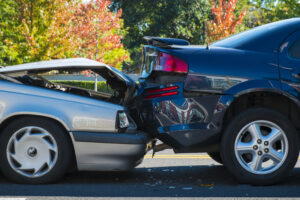Car accidents are, unfortunately, a common occurrence on the roads of Annapolis, Maryland. In the aftermath of such incidents, emotions run high, and it can be challenging to think clearly. However, gathering evidence promptly is crucial for several reasons. Not only does it help establish liability, but it also plays a pivotal role in securing fair compensation for injuries and damages incurred. In this article, we will delve into the importance of gathering evidence after a car accident in Annapolis and discuss the specific requirements for such cases.
Establishing Liability
One of the primary reasons to gather evidence after a car accident is to establish liability. Maryland follows the contributory negligence rule, which means that if a person is found even slightly responsible for the accident, they may be barred from recovering any compensation. Therefore, collecting evidence that clearly demonstrates the other party’s negligence is crucial.
Photographs of the accident scene, damaged vehicles, and any relevant road signs or signals can provide valuable insight into the circumstances leading to the collision. It’s essential to document the position of vehicles, skid marks, and any other visible evidence that may help recreate the sequence of events.
Eyewitness statements can also be powerful evidence in determining fault. Gathering contact information from individuals who witnessed the accident and obtaining their accounts can strengthen your case. Their impartial perspective can offer a clearer picture of what transpired, potentially supporting your claim.
Proving Damages
In addition to establishing liability, gathering evidence is vital for proving the extent of damages incurred in the accident. This includes both economic damages, such as medical bills and property damage, and non-economic damages like pain and suffering.
Medical records play a crucial role in establishing the extent of injuries and the associated medical expenses. Collecting bills, receipts, and invoices related to medical treatment, rehabilitation, and therapy can help quantify economic damages. Photographs of injuries immediately after the accident and throughout the recovery process can also provide visual evidence of the physical toll the accident took.
For property damage, keeping repair estimates, receipts, and photographs of the damaged vehicles is essential. This documentation helps in calculating the cost of repairs or, in the case of a total loss, the fair market value of the vehicle at the time of the accident.
Adhering to Maryland’s Legal Requirements
Maryland has specific legal requirements when it comes to car accidents and insurance claims. Failure to adhere to these requirements can jeopardize your ability to recover compensation. One of the key requirements is the statute of limitations, which sets a time limit for filing a personal injury claim.
In Maryland, the statute of limitations for personal injury claims, including those arising from car accidents, is generally three years from the date of the accident. It is crucial to initiate legal proceedings within this timeframe; otherwise, you may lose the right to pursue compensation.
Additionally, Maryland follows a modified comparative negligence system. This means that if you are found partially at fault for the accident, your recoverable damages may be reduced in proportion to your percentage of fault. However, if you are found to be more than 50% at fault, you may be barred from recovering any damages.
Documenting the Accident Scene
To strengthen your case, document the accident scene thoroughly. Take photographs from various angles to capture the overall context, road conditions, and any relevant factors. Include images of traffic signs, signals, and weather conditions, as these can be crucial in determining liability.
If there are visible injuries or property damage, photograph those as well. Injuries may heal over time, so having visual evidence of the immediate aftermath can be compelling. Capture the license plates of involved vehicles and note the make, model, and color of each car.
Obtaining Witness Statements
Eyewitness statements can be powerful in supporting your version of events. Speak to individuals who saw the accident unfold and gather their contact information. Record their statements, ensuring that they recount the incident as accurately as possible.
Witness statements can provide unbiased perspectives on the accident, helping to corroborate your account. Insurance companies and courts often value independent eyewitness testimony as it adds credibility to your claim.
Seeking Medical Attention
Even if your injuries seem minor initially, seeking prompt medical attention is crucial. Some injuries may not manifest symptoms immediately, and a medical professional can assess and document any potential injuries. Medical records serve as essential evidence when pursuing a personal injury claim.
Follow your healthcare provider’s recommendations for treatment and attend all necessary follow-up appointments. Failing to seek timely medical attention or neglecting prescribed treatments may be used against you in the claims process.
Communicating with Law Enforcement
Another critical aspect of gathering evidence after a car accident in Annapolis is the information collected by law enforcement at the scene. Ensure that you obtain the police report and review it for accuracy. The report typically includes details about the accident, statements from involved parties and witnesses, and any citations issued.
If you notice any discrepancies in the police report, inform the authorities promptly and request corrections. A thorough and accurate police report can serve as valuable evidence when dealing with insurance companies and pursuing a personal injury claim.
Preserving Digital Evidence
In today’s digital age, preserving electronic evidence can be just as important as physical evidence. If possible, take photos or videos of the accident scene using your smartphone. These digital records can provide additional perspectives and details that may not be captured in traditional photographs.
Moreover, consider retrieving data from any dashcams or surveillance cameras in the vicinity that may have recorded the accident. This digital evidence can be instrumental in reconstructing the sequence of events and establishing liability.
Retaining All Correspondence
Keep a record of all communications related to the accident. This includes correspondence with insurance companies, medical providers, and any other parties involved. Retain emails, letters, and notes from phone conversations.
Organizing and preserving this correspondence can help establish a timeline of events and provide a clear record of your interactions throughout the claims process. If there are disputes or inconsistencies, having a comprehensive record can strengthen your position.
In the aftermath of a car accident in Annapolis, Maryland, gathering evidence is paramount to protect your rights and ensure fair compensation. Establishing liability, proving damages, and adhering to Maryland’s legal requirements are all critical aspects of building a strong case.
Remember to document the accident scene thoroughly, obtain witness statements, and seek prompt medical attention. By following these steps and understanding Maryland’s legal framework, you can position yourself for a more favorable outcome in your personal injury claim.
If you find yourself in a situation where you need legal assistance after a car accident, the team at Alpert Schreyer, LLC is here to help. Our experienced attorneys are well-versed in Maryland’s laws and can guide you through the complexities of the claims process. Don’t hesitate to reach out for a consultation to discuss your case and explore your legal options.
Contact us today to ensure your rights are protected and to pursue the compensation you deserve after a car accident in Annapolis. Your recovery starts with the right legal support.
